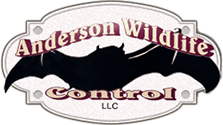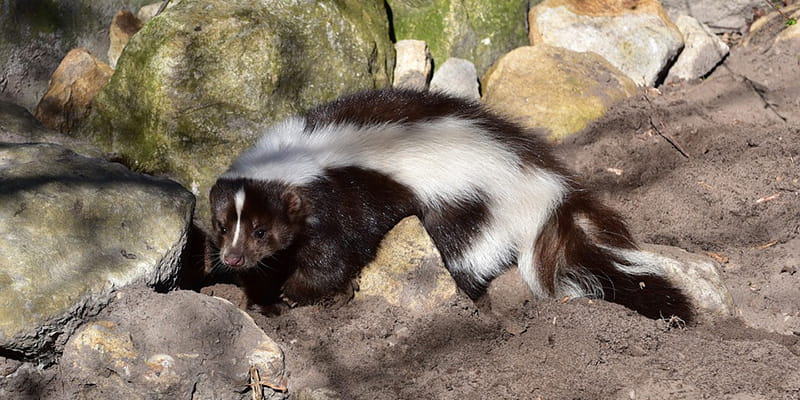When you think of skunks, you probably imagine the black and white-furred animal with the unmistakable bushy tail. Of course, skunks come with an olfactory identifier, too: an unpleasant mix of sulfur-containing compounds that let your nose know that while the animal looks cute, it can wreak havoc should it spray.
Beyond these common attributes, there are actually several different types of skunks. While they vary in appearance, they share many of the same characteristics in behavior and diet.
Here are just a few types and how to identify them:
The Hooded Skunk
Hooded skunks look similar to the striped skunk, but the white of their coats looks like a hood that runs along the top of their heads and the backs of their necks. This species is found from the southwestern United States all the way down to Costa Rica.
The Spotted Skunk
The spotted skunk is a misnomer; this species is easily identified with a black and white coat, but instead of actual spots, it’s colors are rather swirled. You won’t find these in the north east, as this particular skunk is native to Central America and parts of Canada.
The Striped Skunk
The striped skunk is the one you are probably most familiar with; this animal is commonly found in the north east, and is easily identified by its black fur which displays swirls of white stripes.
Getting Rid of Skunks
Regardless of the type of skunk, the behaviors are mostly the same. Their bright colors are an advertisement to be left alone, but when they feel threatened, skunks run through a series of warning behaviors before spraying a predator, or worse – you. Skunks usually spray as a last resort, but you should always take caution when near one of these creatures.
As nocturnal species, skunks are are most active from dusk until dawn. They will forage whatever they can find, as they are omnivorous and not at all picky. Sometimes, a skunk will find its way into a residence, and basements are the ideal places where the skunk can hide. A basement easily provides shelter from frigid temperatures and predators. Skunks will also make their dens under porches, decks, and sheds, and this can pose a problem for homeowners.
To keep away the skunks, you may use chicken wire around your home to keep them from coming in. If you find that skunks have taken up residence in your home, don’t go at it alone to remove them. Not only do you risk getting sprayed, you can do more harm than good.
If you suspect a problem in or around your home, Anderson Wildlife Control can help you mitigate the risk of skunks entering your home, as well as help remove them safely and securely.








